Pope Francis Named Time’s Person Of The Year, Edward Snowden Second
Not surprisingly, Time's editors chose Pope Francis as Person Of The Year. However, Edward Snowden arguably would have been the better choice.
In an annual tradition that has become less and less relevant or interesting as the years go on Time Magazine named Pope Francis its Person Of The Year in a high profile announcement on NBC’s Today show:
The iconic red border of Time magazine will frame Pope Francis as its 2013 Person of the Year, the magazine announced Wednesday morning. By the judgment of Time’s editorial staff, the pope-elected earlier this year after a surprise resignation by predecessor Pope Benedict-was the most influential global newsmaker of the past 12 months. Earlier this week, Time narrowed the finalists down to 10, then five. Pope Francis ultimately won out over NSA leaker Edward Snowden, Syrian president Bashar Assad, Texas senator Ted Cruz and gay rights activist Edith Windsor.
“[W]hat makes this Pope so important is the speed with which he has captured the imaginations of millions who had given up on hoping for the church at all,” Howard Chua-Eoan and Elizabeth Dias write in the cover story. “In a matter of months, Francis has elevated the healing mission of the church.”
The magazine first released such a cover in 1927 under the name “Man of the Year,” and conferred the title on Charles Lindbergh for his solo trans-Atlantic flight. Since then, the annual covers have featured global peacemakers, U.S. presidents, tech billionaires, dictators and more amorphous concepts, like “the protestor” and “the endangered earth.” The editors’ intention is not to praise the figures selected, but to acknowledge their influence in shaping the news and history of the outgoing year. (Hence why Adolph Hitler made the cover in 1938.)
Pope Francis, of course, has made lots of news in 2013. After Pope Benedict announced his resignation in February-the first to do so in 600 years-the Catholic Church elected Cardinal Jorge Mario Bergoglio of Argentina, ending the long line of European popes. Since then, Pope Francis has shaped the global conversation on religion by showing an openness to homosexuality and women’s leadership within the church, as well as by placing an emphasis on reforming the Vatican’s finances while addressing inequality and poverty around the world.
This makes him the third pope to appear as Time’s Person of the Year. Pope John Paul II made the cover in 1994 and Pope John XXIII made the cover in 1962. His public acts of humility, from washing the feet of criminals to embracing a disfigured man, have gone viral online and have quickly reshaped many believers’, and non-believers’, view of the Catholic Church.
You can read Time’s cover story here.
Going into today’s announcement, it was clear that the Pope was in the running to be the person awarded the distinction, and one can certainly find good reason for his selection I suppose. For a man who was the relatively unknown Archbishop of Buenos Aires just a year ago, Jorge Mario Bergoglio has quickly made a name for himself worldwide for his simpler was in the nine months since he as selected as the leader of the world’s one billion Catholics, although it remains unclear just how big an impact he will have on the Church, and the world, going forward. At the very least, though, he has set a new tone for the Church and, in a relatively short period of time, helped to revive the public face of the Papacy in a far more positive direction than his predecessor, who had to deal with the perhaps insurmountable problem of having to fill the shoes of a man who has will soon be canonized a a Saint, managed to do in the eight years that he was the Pope.
Quite honestly, it’s been a long time since I’ve really given much weight to the whole Time “Person Of The Year” phenomenon. To a large degree, it has become little more than a way for the magazine to draw attention to itself in a media market where weekly news magazines have become increasingly irrelevant, and, quite often, its been the occasion for the editors to engage in what can only be described as stunts such as naming “You” for the distinction in 2006, or those occasions on which an inanimate object such as “the Computer” or “Earth” received the distinction. That, combined with the declining relevance of news weeklies generally made the annual hype over who would be the “Person Of The Year” seem less and less relevant as time went on.
Nonetheless, in the days approaching today’s announcement, I speculated that the distinction would go to former NSA contractor Edward Snowden. After all, if you go by what Time claims the criteria for “Person Of The Year actually are, then its hard to think of anyone else who the fits. As it has been described, the distinction is meant to profile a person, group, idea or object that “for better or for worse, …has done the most to influence the events of the year.” Who has done that more than Snowden? Domestically his actions have set of a debate on privacy, 4th Amendment rights, the limits that should be placed on government surveillance, and the policies that have been enacted as part of the War On Terror. They have also set off a debate on the proper role of journalists and, indeed, who is and isn’t a journalist. Internationally, it has had an undeniable impact on relationships between the United States and many nations around the world, including some of our closest allies. With all due respect to Pope Francis, it is still very early in his Papacy and it remains unclear what impact he will have on the world. Indeed, it’s worth noting that Pope John Paul II wasn’t named Person Of The Year until 1994, some 16 years after he had been elevated to the Papacy, and John XXIII was not put on Time’s cover as Person Of The Year until some four years after he became Pope. As it turned out, Snowden ended up coming in second place in the judgment of Time’s editors.
Indeed, Time’s decision not to select Snowden is already being criticized in some circles:
In the days leading up to Time’s unveiling of its decision, writers at rival publications began publicly lobbying for Snowden to be chosen. “No Contest: Edward Snowden Is Person Of The Year,” the New Yorker’s John Cassidy wrote:
In opening the eyes of people around the world to how easy it is for governments to monitor digital communications, and to how complicit major technology companies have been in these surveillance programs, he sparked a long-overdue debate about how to preserve privacy in the information age—and whether such a thing is even possible. If Snowden hadn’t come forward, the steady encroachment of the surveillance state would have continued, and most people would have been none the wiser. Now Big Brother and his enablers have been rattled, and have been forced to be a bit more open.
As noted, I tend to agree with this assessment. In the end, though, I’m not sure it matters. Time Magazine is hardly the bellwether publication it once was and, outside of the publicity this announcement gets each December, it hardly seems to be a big player in the media world anymore.
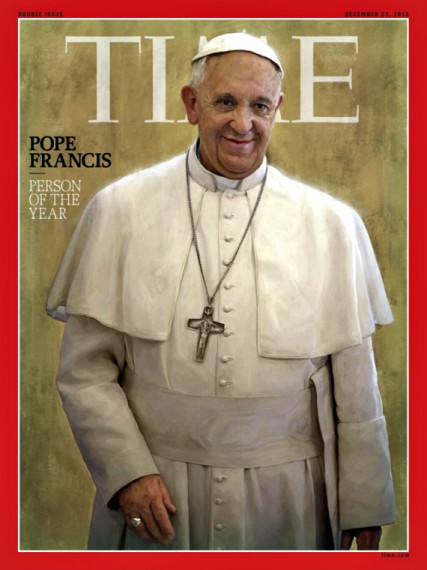

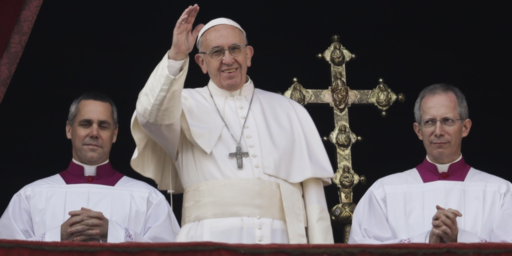
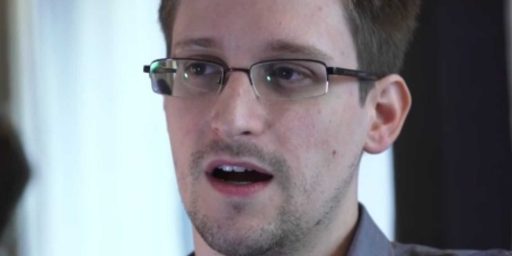
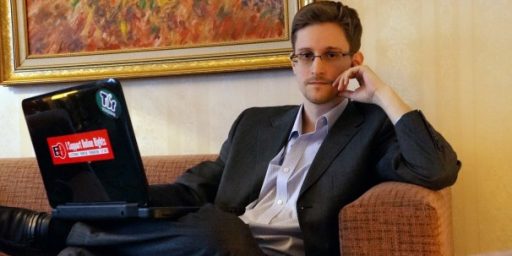
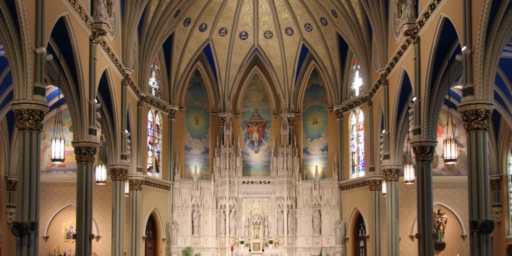
I would have selected Edward Snowden. However after he went to all that trouble to provide this sensitive information to Glenn Greenwald (safely ensconced in Rio de Janeiro) he ends up in exile in Russia? That is simply not worthy of the “Person of the Year” award.
I would have gone with a headline of “Time Chickens Out” personally. Francis is a great PR guy, which is something the Catholic church desperately needs right now to be sure, but until we start seeing priests in handcuffs for abusing kids and stealing from their respective diocese its all still just PR.
For all his faults, Snowden actually did something.
I couldn’t have put it better.
“Time Magazine are a bunch of pants-wetting cowards” is the headline I personally would have gone with.
Going with the pope is safe, milquetoast choice, that is sure not to offend too many people. What actual, tangible impact has he had on the world so far?
Well…you spent months denigrating the Occupy Movement…then Romney blundered into the same discussion of the 1% and makers v. takers…and now here’s the leader of a billion Catholics preaching the same message.
So excuse me if…when you say;
I roll my eyes hard enough to give myself whiplash.
Really? What did Snowden do? How has the world been changed? Have you all stopped emailing? Did you give up your cell phones? Have we stopped spying? Has anyone else?
The final effect of Snowden’s revelations will be just about nothing. Some folks will wail and moan and rend their garments, and then, in a couple of years, they’ll quietly accept the fact that this is the way the world is, the way it was inevitably going to be once the technology existed.
All we have here is a confrontation with modernity. If you walk around with a tracking device in your pocket (and mine is an iPhone) then you’re going to be tracked. What did people think was going to happen? If you surrender data to private industry it’s absurd to be outraged that the government has it, too. How is this a surprise?
@michael reynolds:
Just another thing Libertarians are off-base about.
As for Francis, I like this guy. He sounds very much as if he might be an actual Christian, a sect almost unheard of in the Catholic church, and even less in evidence in the American evangelical community.
I’m an atheist, but I have great respect for Jesus Christ and for his teaching. He was two millennia ahead of his time. 2000 years. That’s pretty far ahead. So far ahead that only now is a pope finally catching on to the whole thing.
So, while Francis’s message is poison to libertarians and Republicans, it’s going to resonate with the 99%. Not because Francis is necessarily a genius, but because Jesus was.
@michael reynolds:
Michael, many people simply “forgot” that in the digital age the old rules of privacy simply do not apply. Snowden is a hero for reminding people that they (we) must once again pretend to be outraged that our technology makes it easy for many entities, public and private, to “spy” on us.
@michael reynolds:
Really? What did Francis do? How has the church been changed? Have priests been turned into the police for abusing kids? Did the church stop stonewalling victims of abuse? Has the rampant embezzlement problem that exists in nearly every diocese in the US been addressed? Has the church stopped marginalizing women in its hierarchy?
Snowden took away plausible deniability. With that real changes do happen.
I think if Snowden had just released the documents and either quietly left the country or stayed to fight espionage charges, he may have been named Person of the Year. Instead, he became a punchline for comedians and pissed off a lot of his supporters with his fleeing to China, hiding in an airport and ultimately settling in Russia. We all sort of lost the train of thought on what he released and instead the news focused on what happened afterwards. He may be a hero, but he’s a deeply flawed one in the public’s eye. How can he compete with someone who’ll probably literally become a saint after he dies?
@Al:
I’d just prefer we don’t promote vigilantes. If the expansion of the security state is an issue you care about, celebrate Ron Wyden.
@Al:
He hasn’t done much, mostly he’s set new priorities and a new tone. But it’s early days yet, and setting very different priorities for his church is a good first step.
@Al:
The guy came out and eviscerated 40 years of f~cked up Conservative economic theory. And in the process made it evident that Republicans are not in any way Christian.
That’s good enough for me.
@michael reynolds:
I can tell you the effects within the intel community are far-reaching and exceptionally negative. Snowden has done more damage to America’s national security than most Americans will ever know or understand.
I’m starting to think he was a Russian plant all along, given that everything he did had the effect of weakening America’s standing in the world, to the benefit of Russia.
@Al:
The guy came out and eviscerated 40 years of f’ed up conservative economic theory. In the process he made it crystal clear that Republicans are not in any way Christian.
That’s good enough for me.
This is an organization that has spent years supporting unfettered child molestation, using extortion (fear of hell/purgatory) to drive poor people into tithing their meager resources resulting in deeper poverty – even while building magnificent cathedrals with their money in their own neighborhoods. All the while they are sanctimoniously looking down on other people’s religions (which admittedly often behave similarly).
It is fascinating to me how a clearly evil organization finally elects a leader that whose marketing image is simply that of a normal human and we fall all over ourselves to honor him.
The previous popes have really set the bar low.
@Tony W: You really have an extraordinarily positive image of what a “normal human” acts like.
I think the difference is Snowden didn’t really do what he did because it was the right thing. His motives were less then altruistic or patriotic. He didn’t “walk the Walk”, he merely stumbled on the Path through his actions. This was not a heroic strike aimed at a hydra or a stand against tyranny. You ascribe far too much to him if you think he’s some sort of hero – morally grey people can do the right thing, too.
Francis on the other hand is actively trying to walk the Walk. He will never get everything right and may never succeed in the ways we really want (need) him to. There’s a lot of work to do. But his actions are intentional and deliberate – he means to follow in his Savior’s footsteps the best he can. His is the strike against the hydra; time will tell how many heads he manages to get.
@Mikey:
I imagine that’s true, though on the up-side maybe NSA has learned not to let low-level contractors load up thumb drives with secret data.
@Tony W:
I completely agree about the RC. However, one of Jesus’ cleverer notions was that redemption is to be pursued and forgiveness granted. I don’t think we’ve seen true contrition yet, but if we do then we should be ready to acknowledge it, to insist on actions that rise to the level of redemption, and then to forgive. I’m hopeful that Francis may get that (finally) and we’ll see results.
@michael reynolds: Unfortunately, there isn’t much that can be done on that front, because a network admin has to have admin rights. That’s why we put people through a security clearance process–to establish they are trustworthy. In Snowden’s case, it was the clearance ball that got dropped. There are, and have been for quite a while, plenty of people who have the level of access Snowden had, but so far only one Snowden.
@Al:
The key one I would add is: Have they stopped brainwashing children with their myths? It should be like cigarette advertising and purchase, not allowed until you are 18 😉
Add me to the crowd that believes that these two should have been flipped. Francis is without a doubt in the top 5, but in terms of overall effect for this year, Snowden “deserves” top honors.
But, more broadly, as Doug has said, this is more about publicity for Time than anything else. And I suspect that the editors felt that Francis was deserving of honors (which I think he is) AND he would sell more issues/create more of a media story.
Well, he told the “Hatin’ in Jesus name, amen” crowd that they are not on the fast track to heaven. That makes him a winner in my book…
What did “Edith Windsor” do that is comparable to Snowden to warrant a nomination? I honestly never heard of her before this article.
@John:
She was part of the lawsuit that led to the unraveling of DOMA. Contrasting her with Snowden, she didn’t buck the system; she used it.
I do not personally care who Time calls “
ManPerson of the Year. In 2003, my brother (an American soldier) was Person of the Year and three years later, I got my turn. Everyone did, actually, because they gave the honor to a pronoun.But that said, I don’t see how Snowden gets the honor. Steal a bunch of national security secrets, give it to a crusader, and then cut out to Russia? You don’t have to support pervasive NSA surveillance to find that to be less than noble.
Meanwhile, we’re still getting this trickle of horror stories, all sourced to Snowden. His first leaks were first published, what, in June? Here we are six months later and the news orgs that have been poring over the hundreds of thousands of documents fulltime are coming out with new, startling revelations every day. They used Google cookies!
Now I don’t mean to imply that Snowden is lying or his revelations are false. I’m merely pointing out that the story may not be “NSA spying on everyone” but rather “NSA collects more information than it can ever process.”
Reasonable people can disagree on whether that’s necessary or even wise, but it’s a little silly to lionize the guy who broke the law to point that out.
@James Pearce:
I guess the lady from Roe V. Wade should also get an honorary mention at some point in the future then.
@John:
Already done.
In 1975, the Time Man of the Year* was “American Women.”
* It didn’t become Person of the Year until 1999.
@James Pearce:
I was under the impression Greenwald was slowly leaking the trove over time to maximize the amount of news cycles a “startling new revelation about the American surveillance state” occupies.
Not a great idea if you’re hoping to provoke change as it turns out, since most people I know have just acclimatized to the idea of the NSA spying on everything. You turn what should be a bombshell of startling revelations into a slow trickle, and you get, err, less bang.
@Tillman:
At least Greenwald knows how to do “exile” – Rio de Janeiro.
@Tillman:
Which was just what I said would happen, to much derision and abuse around here. But that outcome was inevitable, regardless of Greenwald’s mistaken notion of feeding a growing rage through weekly leaks. Life is trade-offs. We want our toys, our toys betray us. We still want our toys. We don’t really believe it matters for the excellent reason that it doesn’t much.
Ah, c’mon folks. The question Time management asked themselves when choosing their Person of the Year was “Who will sell more Time Magazines.” End of discussion (at Time).